How to Make Money From Parking Your Domain Names
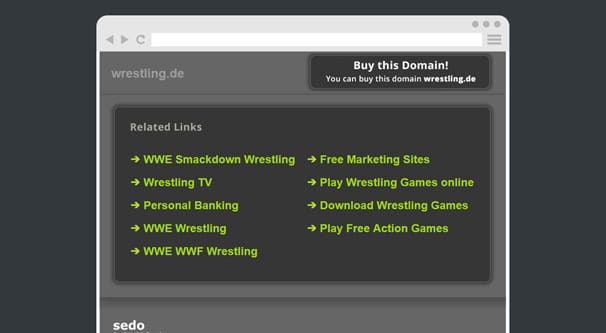
Domain parking is one of those techniques that is widespread, commonplace, and extremely variable. Sometimes you can make a lot of money from it, while other times you’ll lose money on the meager annual registration fees.
The Elephant in The Room
The first thing we need to address is the concept of domain hoarding. Hoarding digital assets can be a real problem for entrepreneurs. Maybe you keep an eye on domain auction sites. Maybe you just come up with ideas and go seek out relevant domains to register in case you decide to pursue the idea.
The problem is, for every 10 domains you register, you’re probably only going to pursue one of those ideas, and for every 10 ideas you pursue, maybe one of them will reach a point where it’s complete enough to go live. It’s not a very high success rate. Such is the situation among entrepreneurs who buy up domain after domain, only to never use them and let them languish.
Now, if these are generally unheard-of domains that cost you $1 to buy and register for three years, that’s not a big deal. On the other hand, if it’s a good exact-match domain on a .com that costs you $5,000 to buy, only to sit in your portfolio with no content, that’s a huge wasted investment. So it is that domain hoarding can become a problem.
Making Money with Excess Domains
There are a lot of different ways you can use your portfolio of domains to make some money. I’m primarily going to be talking about domain parking – as the title implies – but I’ll go over other options first in case you want to pursue other options.
- Domain Parking. Parking a domain means registering the domain but not putting a site on it. You essentially turn the domain into a landing page with a “this domain for sale” site on it, knowing basically no one is going to be interested in buying the domain. You cover this landing page with ads, and whenever someone lands on the page to see if it exists, you make some money. Then, if someone does express interest in buying the domain, you can sell it for a profit.
- Flipping Domains. Domains grow in value as they age, since the age of the domain is a search ranking factor in Google, albeit a minor one. A lot of marketers look for domains that have existed for a long time, to buy up and put a site on for that additional little bit of value. You can park domains and wait until someone wants them, then sell them for a profit. This goes hand in hand with domain parking.
- Microsite Selling. You can buy up domains and set up very basic microsites on them to rack up some value. These sites are basically narrow niche sites with a dozen or so pages on them, and maybe one blog post per month, just to keep them active. They run affiliate links, generally, and can make you some money. This is, however, more time consuming and difficult to implement profitably. The idea is, of course, to make some affiliate money from the site while building up enough value that it’s worth selling.
And, of course, you can always just let an unprofitable domain expire and cut your losses. Even if it only costs a buck or two a year to register, that’s still a drain on finances you don’t need.
Now, parking domains is not going to make you a millionaire. It’s not a get rich quick scheme. It’s merely a way to turn a drain in finances into a break even point, or make a small amount of money while you decide what to do with them.
Issues with Domain Parking
There are a lot of issues with parking domains as a means of making money. There are risks, and you can lose money for quite a while before you reach a point where you’re making money.
First of all, Google doesn’t really index parked domains. A parked domain is not of value to a search user. A parked domain has no value at all except to someone who might be interested in buying it, for that matter. You will get little if any traffic from Google; almost all of your traffic will come from other people who are buying domains for a portfolio, and the occasional person looking for domains for their own ideas. If you’re careful about selecting expired domains rather than brand new domains, you can get some traffic from old now-broken links, but even that can drop off as webmasters remove those links.
Secondly, a parked domain is not going to be a big money-maker. Display ads on their own don’t make much money, and while your initial investment isn’t necessarily high, neither are your profits. It’s a volume game more than anything; you need enough domains that, in aggregate, they make you more money than you’re spending to keep those domains registered.
Third, there are other potential investments with domain parking. You may have to have a robust web hosting package to support all of those domains, which can be expensive on its own. On top of that, you might want to be paying for a domain parking service, which will handle the setup, hosting, and ad management for you, but which costs money on its own as well. There’s also always the investment of time. Never underestimate the time it takes to manage domain parking, especially if you’re doing it on your own; that’s time you could be spending on your real projects instead.
You also can’t really drive traffic to a parked domain. You would never buy ads to send people to a parked domain; most PPC sites won’t approve them, and even if they did, it’s more money than you would be making. You can’t build links to them from social media; it’s basically a broken link as far as users are concerned. You’re essentially just trying to capture the dregs of traffic that has nowhere else to go and make a few cents from them in passing.
Also, there’s one final issue; sometimes you’ll lose control over valuable domains with no recourse. If you register a domain that matches a brand name of an existing company, and you park that domain, the company has three options. They can ignore your registration of the domain. This is risky, because someone else could buy the domain and set up a phishing site or a competitor to steal their traffic and customers. They can buy your domain, though they might not want to pay whatever high asking price you want to set. Or they can simply approach your domain registrar with a trademark dispute and seize the domain, and since it’s their trademark, there’s nothing you can do.
If you want to know more about that, look up domain squatting. Suffice it to say, if you don’t own the trademark but you’re parking the domain, it can be taken from you and the trademark owner is under no obligation to compensate you for it.
Making Money
Now, if you have a portfolio of domains and you want to try to make some money from them while you hold them, you can park them. As I mentioned, parking them basically just means setting up a landing page with a bunch of ads, as well as information a user might be able to use to contact you if they’re interested in buying the domain. The price of the domain should be set at whatever you’d be willing to sell; typically more than you paid for the domain plus the ongoing costs of the domain, plus again the profits you’ve been making from it. After all, you don’t want to lose money on the deal.
There are many services out there willing to manage a portfolio of domains for you, funneling you whatever profits you make from the parking. These services are usually worthwhile, simply because they save you a ton of time you would otherwise spend in managing your domains. On the other hand, you have to pay for the service, so you need to balance the costs versus the potential profits.
Here are several services you can use.
- The Parking Place is a subdivision of Media Breakaway, which is an advertising company specializing primarily in native advertising and affiliate marketing. You submit your portfolio of domains to their system, and they monetize them for you with a variety of techniques. There is no fee to use their system, though they will skim some of the profits from the ads they run in rotation.
- Sedo ha a domain parking system that you can use, though it’s aimed more at people who want to make serious money off of a portfolio of parked domains. In fact, they generally recommend that you have, at minimum, a portfolio of at least 500 parked domains. They also act as a broker if you choose to sell the domains.
- GoDaddy has their own system called CashParking for domain parking. Unlike the other systems, they charge you a monthly premium for their system. You also only earn a percentage of the revenue from the parked domains, which varies depending on the plan you buy.
As you can see, they aren’t perfect systems, but you can use them to make money both through the parked advertising and through selling the domains when interest appears. You can also choose not to sell the domain, though domain parking systems usually include “buy this domain” or “this domain is available” calls to action.
As you might imagine, you’re not going to be making very much money on most of your potential domains. Only domains that have significant interest and traffic are likely to earn you money, and the primary source of income from parked domains is selling those domains for a markup to someone who wants them more than you do. As such, I don’t recommend parking the premium domains that fit the projects you want to work on. Only park domains you’re willing to sell for a moderately reasonable price.
Choosing Domains to Park
Some people want to make money primarily from parking domains, and want to build a portfolio to do it. This is perfectly fine, so long as you recognize that it’s going to take a lot of research into a domain to make sure it’s going to make a profit. Unprofitable domains should be culled, while profitable domains should be promoted, and you need to constantly be adding new domains to your portfolio.
If you want to pick domains to add to your portfolio, you need to pass them through a number of different filters. If they fail one of these filters, they probably aren’t going to make you any money, and should be ignored.
- TLD. TLD is always the first filter you should apply. Every domain in your portfolio should be a .com, a .org, a .net, or another “major” TLD. You’re going to have virtually zero interest in any .io, .biz, .faith, .music, or any other novelty TLD. The only exception to this are gimmick names, like the YouTu.be URL which uses the Belgian .be TLD.
- Residual Interest. In order to make money from a parked domain, you need traffic to that domain. Looking into expired domains is then extremely important. Expired domains typically cost more than previously unregistered domains, but they have residual traffic from old links and old users, so they can make more money right away.
- Niche Profitability. Your domains need to be able to sell for a profit, which means you need to find domains in a niche with interest. No one is going to want to buy hcfneshs.com from you, because it’s meaningless letters. On the other hand, when there’s a new trend like the ongoing expansion into VR, Internet-of-Things, and wearable tech, you can register domains related to those and get the interest of startups who expand into that space.
- Spelling. Generally you want properly spelled domains, though there is a certain small market for misspelled domains. Google owns gooogle.com and goggle.com, since they are common misspellings that could be used to poach traffic or phish users. This does run the trademark risk, however.
If you can find domains that fit all of these criteria, and if you can acquire enough of them, you can make real money off a portfolio of parked domains. However, that’s a lot of ifs. If all you have is a small portfolio of potential project domains, you probably won’t be making much from them if you park them, so it’s probably not worth the effort to set up.
 ContentPowered.com
ContentPowered.com
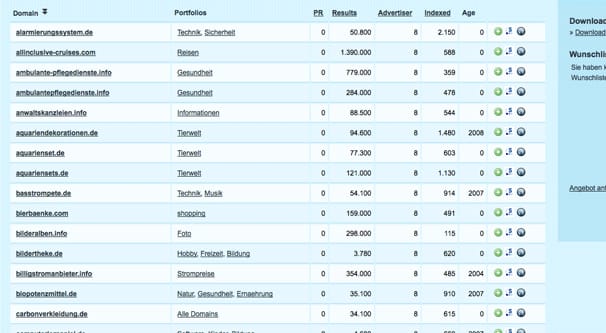
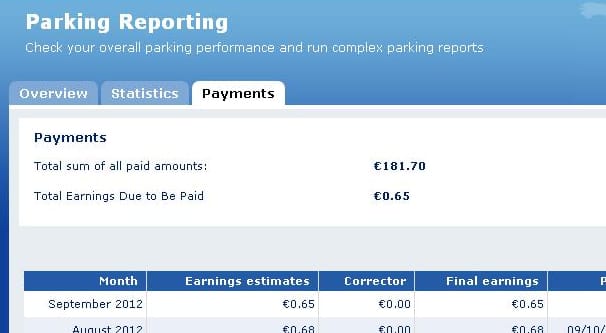
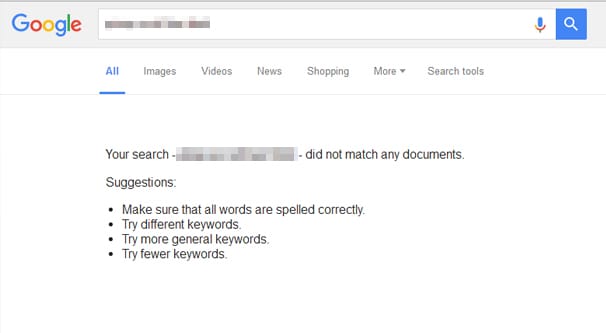



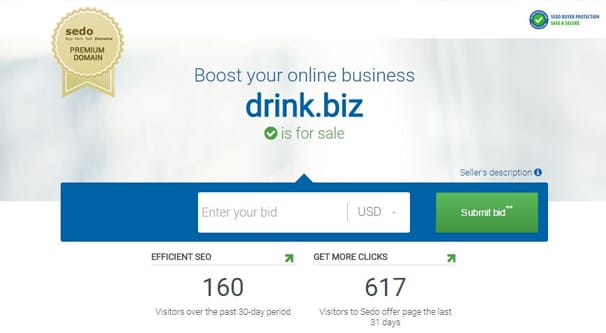




Great article! I was kicking around placing ads on some domains and it’s clear from your text that it’s a steep uphill climb to a very small pot of money (if any!). Thanks for taking the time to go deep into all the avenues.